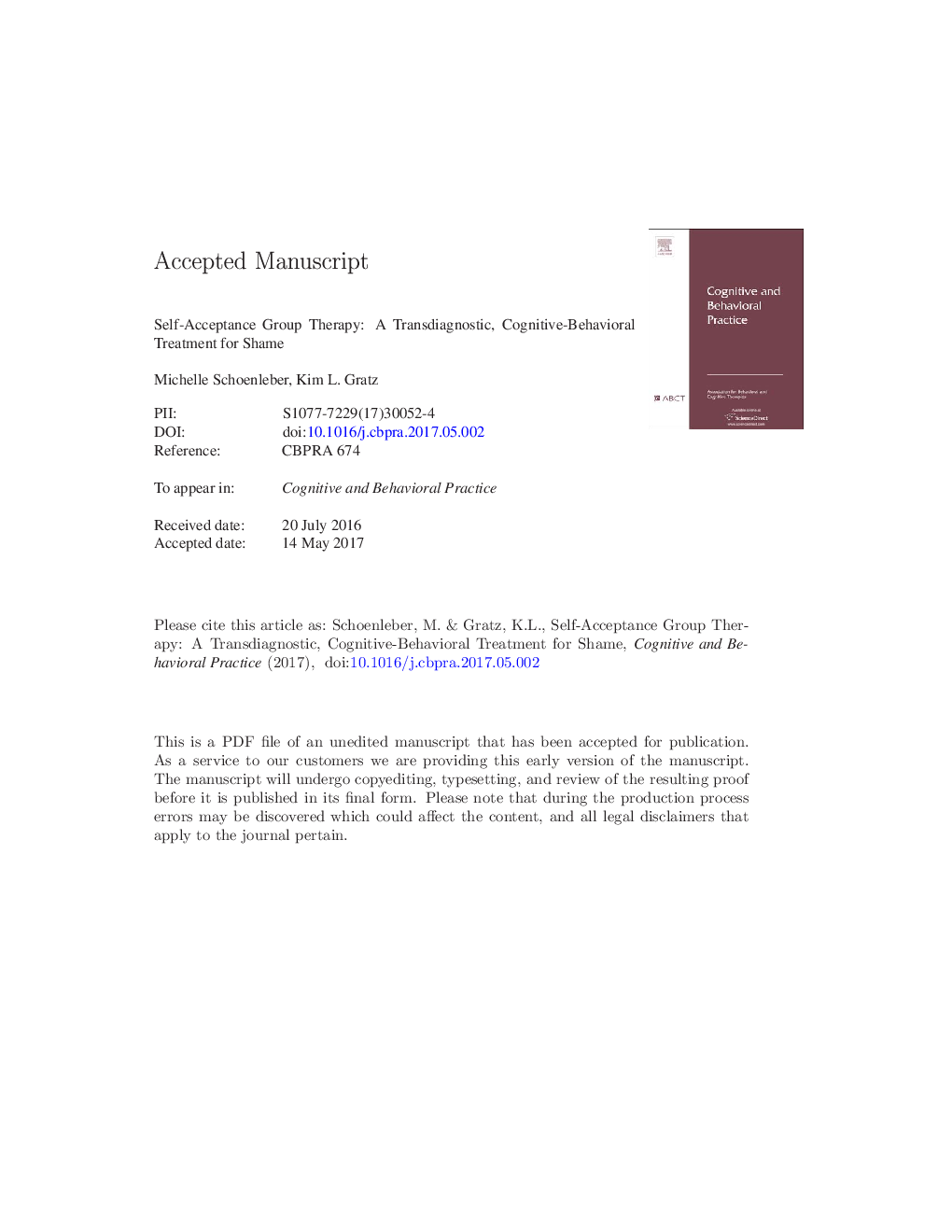| Article ID | Journal | Published Year | Pages | File Type |
|---|---|---|---|---|
| 7264402 | Cognitive and Behavioral Practice | 2018 | 39 Pages |
Abstract
Shame has broad importance to psychological problems. However, few interventions specifically address shame, and most of these have been designed to target shame in the context of particular disorders. Self-Acceptance Group Therapy (SAGT) was developed as a transdiagnostic shame-focused treatment, based on a cognitive-behavioral framework. SAGT is an 8-week treatment that involves psychoeducation and training in the use of cognitive and behavioral shame regulation and support-building skills in order to promote self-acceptance. After describing SAGT, the study presented used an open trial design to examine the utility of SAGT for addressing shame, self-acceptance, quality of life, and relevant psychological problems (e.g., depression, social anxiety). Twenty-four outpatients with elevated shame were assessed at pretreatment, posttreatment, and 1-month follow-up. By post-treatment, results revealed significant improvements in self-acceptance, shame, and borderline personality disorder (BPD) symptoms among treatment completers (n = 18), with all of these improvements maintained at follow-up. Additionally, significant improvements in quality of life, emotion dysregulation, depression, loneliness, and stress were observed at follow-up. Results provide preliminary support for SAGT's utility in the treatment of shame and related pathology among diverse outpatients.
Related Topics
Health Sciences
Medicine and Dentistry
Psychiatry and Mental Health
Authors
Michelle Schoenleber, Kim L. Gratz,
